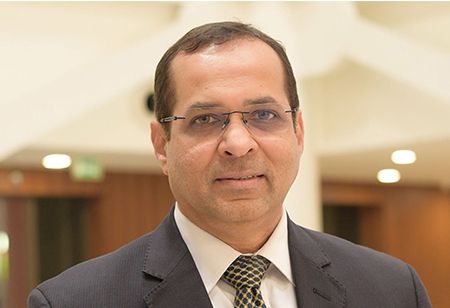
In the OPPI ANNUAL SUMMIT 2024, Bhushan Akshikar, President OPPI, Vice President & Managing Director, GlaxoSmithKline Pharmaceuticals Limited, reflected on the relevance of organizations commitments to accessible and high-quality healthcare solutions for India. He pointed out the quality remains the crucial aspect for the pharmaceutical landscape as there is a significant contribution to global pharmaceutical production from major players. Following are the key insights:
As we work towards an inclusive, innovative and sustainable healthcare future for India, OPPI remains committed to the vision of Bharat Ke Liye, delivering accessible, high-quality healthcare solutions to Indian patients. From an industry perspective, we are dedicated to partner with every ecosystem partners to provide effective solutions for today and also lay the groundwork for India’s emergence as a global leader in pharmaceutical sector for tomorrow. Collectively, we are creating a future where healthcare is both accessible and transformative for everyone.
India's pharmaceutical sector showcases exceptional progress in terms of quality standards as every third pill sold in the EU and US is made in India, and the number of US FDA-approved plants is also because of the manufacturing prowess. The member companies across the board play a significant role in adding value to the market. The collaboration area will continue, and it may stay as the contract manufacturers who work with most multinationals are there to the same quality standards. And that's one way of feeding back into the ecosystem to keep raising the quality standards.
Innovation remains the cornerstone of the pharmaceutical sector, with a focus on making a meaningful difference in individual lives. This commitment drives efforts to address healthcare challenges and develop new solutions that meet the needs of the population. This is what the industry is aiming for and will be able to solve their health concerns. Global capability centers are the big incubators creating an innovation ecosystem. However, 90,000 jobs have been created that still need to be made. Most of these jobs are in early research and development, protocol development, and biostatistics, using a large amount of Machine Learning (MI) and Artificial intelligence (AI).
Many pharmaceutical companies are making a strategic shift from generic to innovative drugs, driven by the creation of robust innovation ecosystems. While Indian companies are yet to fully embrace this trend, several multinational corporations under the OPPI umbrella are collaborating with institutions like IIT to accelerate advancements at the intersection of health and technology. So, for india to make a significant stride across the globe, it is crucial to have collaborations and thats where most of the companies within OPPI are looking in the same direction.
As far as global clinical trials are concerned, the industry has observed several ups and downs, twists and turns over the last decades. However, in the previous few years, there has been much clarity as most of the multinationals operating here is backed by a large number of trials. Major pharmaceutical players have been a part of this clinical trial, which is happening in India, and that's good in terms of even accelerating access and reducing drug lag. These are the robust steps we have already witnessed, and the more scale you have, the more inclined we are towards not just making India but this theme of make, design, and invent in India as opposed to somewhere else.
We use cookies to ensure you get the best experience on our website. Read more...